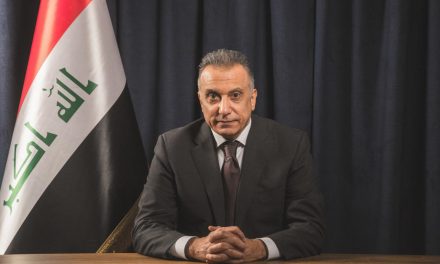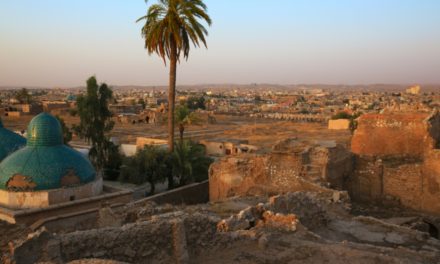(KRG Spokesperson. Photo: Herish Qadir/NRT Media)
When Iraqi journalist and researcher Hisham Al-Hashimi was shot dead in Baghdad on July 6, 2020, the majority of the leaders and officials from the Kurdistan Regional Government (KRG) condemned the assassination. The tone with which they spoke suggested that their region was a safe haven for journalists. The KRG has often been praised by many in the West for its “democratic and pro-Western values” as an “ideal island” in a hostile region. But is that praise fully deserved? Is the Kurdistan Region actually superior to the rest of federal Iraq in respecting press freedom and upholding democratic principles? In order to answer this question, let us examine this field.
In the last decade several journalists have been arrested, tortured and killed, mainly by partisan security forces loyal to the two traditional ruling parties: Kurdistan Democratic Party (KDP) and Patriotic Union of Kurdistan (PUK). It is not simply an issue of violation, which occurs in many countries, rather it is that the Kurdistan Region is exceptional because in it “the assailants have full immunity”, as CPJ’s representative for Middle East and North Africa Ignacio Delgado told me in an interview.
Since 2008, there have been at least four journalists in the Kurdistan Region whose murderers have not been prosecuted: Soran Mama Hama (2008), Sardasht Osman (2010), Kawa Garmiani (2013), and Wadat Hussain (2016). Security officials found neither the perpetrators nor the motive behind their killings.
Whatever you hear from a Kurdish politician, the actions tell a different story. No one should be deceived by post-Saddam democratic law and regulations in Iraq and Kurdistan. Ignacio Delgado told me that Kurdistan’s journalism law is one of the best laws in the region, but it is never implemented, pointing out that “in Iraq and Kurdistan Region it is the perpetrators who have full immunity not the journalists”.
According to reports by international organizations such as CPJ and RWB, even during the COVID-19 pandemic, several journalists have been arrested and harassed by partisan security forces. The KRG has also targeted major opposition TV channel NRT, calling for its closure. This step is a clear violation of Article 1 of the 2007 Press Law which states that “[t]he press is free and no censorship shall be imposed on it. No journal shall be closed down or confiscated”.
NRT and some independent journalists reported that the government has used the pandemic to delay paying the salaries of public employees for months. Journalist Hemin Mamand who is based in Erbil was arrested only for criticizing the KRG prime minister in a Facebook post and he was imprisoned for more than a month without a court ruling.
According to Human Rights Watch, “authorities charged Mamand under article 2 of the Kurdistan Region’s Law to Prevent the Misuse of Telecommunications Equipment for encouraging people to break the lockdown and also for defaming the police under article 433 of the Penal Code”, a trick used by Iraqi and Kurdish officials to threaten and silence journalists. Human Right Watch’s June 2020 report on Iraq stated that “authorities are continuing to use vaguely worded laws in places throughout Iraq, including in the Kurdistan Region, that allow prosecutors to bring criminal charges for opinions they object to”.
What is also notable in relation to press freedom and violation against journalists in Kurdistan is that journalists are always the victims of political conflicts between the two traditional ruling parties: KDP and PUK, where the former has full control in Erbil and Dohuk while the latter controls Sulaymaniyah.
Last October, NRT presenter Amanj Babani– a close friend of mine- his wife, and their son were killed in their car. Forces linked to the PUK in Sulaymaniyah claimed he killed his family and committed suicide. Three months later after some back and forth statements between both parties about other issues, security forces loyal to KDP in Erbil claimed to have evidence that the family was actually murdered.
While Kurdish officials were condemning Hashimi’s murder, the Committee to Protect Journalists (CPJ) published four reports within 20 days in last July regarding violations against journalists in the Kurdistan Region of Iraq.
Since Saddam Hussein’s removal, at least 155 journalists have been killed and nine have gone missing. A Significant portion of these violations occurred in the Kurdistan Region. When you see the reports produced by external observers you cannot spot any difference between Kurdistan and the rest of Iraq.
In the past, the full picture of the KRG was not yet comprehended by the international community, something that is gradually shifting.
The KRG has enjoyed two decades of sympathetic reporting and treatment from the United Nations and other international organizations. In recent years, this seems to have changed. In her last report, Special Representative of the United Nations Secretary-General for Iraq Jeanine Hennis-Plasschaert told the United Nations Security Council that “in the Kurdistan Region as elsewhere in Iraq: transparency, freedom of expression, fundamental reforms, fighting corruption are of critical importance, as is political unity”.
Almost 15 years after his visit to Kurdistan, this description from New York Times columnist Thomas L. Friedman is still the most accurate for the “ideal” region: “Kurdistan is not a democracy. It has real parliamentary elections, but the region’s executive branch is still more ‘Sopranos’ than ‘West Wing,’ more Singapore than Switzerland — dominated by two rival clans, the Talibanis and the Barzanis”.











